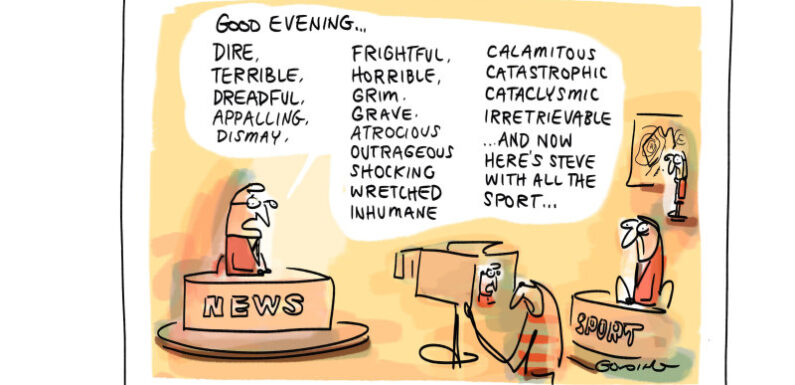
Save articles for later
Add articles to your saved list and come back to them any time.
Matt GoldingCredit: .
To submit a letter to The Age, email [email protected]. Please include your home address and telephone number.
Living with racism
When I arrived in Australia, nearly 50 years ago, as a young Dutch migrant, I was horrified by the racist attitudes towards me. I was constantly referred to as a “Dutchie” in my first and consecutive jobs .
I was yelled at riding my bike along St Kilda Road, on my way to university ″get out of the way, you bloody migrant”.
When I carried my first-born baby in a sling I was told I looked like ″a kaffir″. Then later on when my Australian children went to school they came home and asked me what a “clog wog″ was.
The worst and most revealing comment must have been from a family member to my husband ,who said, ″She is actually a nice mother.“
And all that endured and shrugged off with white skin, blue eyes and still blonde.
Australians not racist ? My experience is different.
Ruth Davis, Carrum
This land was whose?
I’m a 90-year old-woman of Jewish extraction. I remember 1948, when the British told the world they were creating Israel. But unlike the former treasurer Josh Frydenberg (Comment, 21/10), I ask myself was it their land to give, and what happened to the people of that land? Were Palestinians who had lived there for centuries asked could their land be given away?
Marion Harper, Reservoir
Reign of madness
How did we get here? When a group of people murder civilians, especially babies, there is no excuse, prevarication or ″provocation″, nor is it ″resistance″. I say this as a proud Australian Jew supportive of the Palestinian people’s right to self-determination alongside Israel’s continued existence. I say this as someone who is not a starry-eyed ideologue or as someone who does not consider himself better than anyone else because of my ″tribe″.
I say this as someone aware of the historical complexity of the Middle East, as someone with friends of all ethnicities, as someone grieving the loss of life in Gaza currently. I say this as someone whose extended family was decimated during the Holocaust, and who never expected to see chants of ″gas the Jews″ in my own city.
How did educated, intelligent people with huge followings, activists and academics alike, who claim to be supporters of human rights, especially the rights of women and children, decide to respond to the worst day for Jewish women and children since the Holocaust with varying versions of ″it’s terrible but…?″ I ask, Have people lost their minds?
Simon Tedeschi,
Newtown, NSW
Our blindspot
Waleed Aly (Comment, 20/10) indicates that, among other things, the failure of the referendum was partly because the application of such a Voice was “exclusive to a subset of Australians”. My view, as a non-Indigenous Australian, is that the Voice would be of benefit to all Australians.
It was not designed to achieve equality by advancing one group while holding others back. We understand as Australians that our national identity is aligned with our landscape. Landscape and country are central to our official national anthem. Our artists speak of it in the works we cherish. Through rich knowledge, First Nations peoples cultivated and sustained this landscape. How have we come to have such a blindspot for the central role of First Nations people in what makes our country? What is the threat in recognising this?
We live in a country in which status as the head of state, is conferred by birth exclusively to a member of the British Royal family. No Australian can ever become our head of state, as per the Constitution. Much has changed since 1901 but how long will it take for us to look into our blindspot and discover who we are?
Laura Nath, Murrindindi
Closing history’s gap
One of the fundamental deceptions at the heart of the No argument for the referendum was that a Voice to parliament enshrined in the Constitution would divide the nation on the grounds of race, ethnicity and ancestry, giving Indigenous Australians an unequal and privileged status.
This argument falsely equates and conflates the notions of Indigenous ″heritage″, with racial and ethnic ″heritage″ since colonisation. Before 1788, (roughly) 100 per cent of Australian inhabitants were Indigenous. Since then the distinction between indigeneity, race and ethnicity has become increasingly blurred, compounded by ignorance, and denial.
The Indigenous proportion of the population has been reduced to 3 per cent through 235 years of dispossession, migration, physical and cultural genocide, enforced assimilation, an exclusionary post-Federation Constitution until 1967, and denial of political and human rights.
Regardless of the referendum outcome, the fundamental ″gap″ that needs to be closed in order to reconcile and unite the nation is the one between 60,000 years of Indigenous history and 235 years of post-colonial history, by which modern Australia is integrated into a vastly more ancient history which places our First Nations at its very source.
Harry Zable,
Campbells Creek
Forgo the Fogo
We recently received our Fogo recycling bin and accompanying compostable liner bag.
I understand the bag is used to eliminate the need to wash out the container, thus saving water (it doesn’t). I wonder if the volume of water used to make the containers and bags was also taken into consideration? It feels like every attempted recycling ″solution″ is two steps forwards and one step back.
Perhaps we could insist that retail plastic bags, particularly those used for vegetables in supermarkets be made of the same plastic so that they can be used as a liner.
Alternatively, just go old school and wrap your scraps in newspaper before depositing in the garden bin and skip the plastic Fogo bin altogether.
Stephen Farrelly, Donvale
Mention this war
Don’t forget the Ukraine.
Jocie Cohen, Blairgowrie
Most Viewed in National
From our partners
Source: Read Full Article
